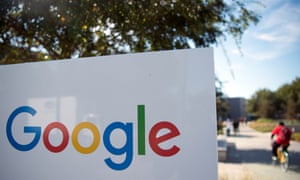Ofcom report into news consumption:
- National Readership Survey provides newspaper readership figures
- online consumption metrics from UKOM/comScore
- Ofcom appoints news surveys by primary source
- BARB has metrics on TV viewing
1) What are the most popular platforms for audiences to access news and how has this changed in recent years?
- Radio - least popular
- Apps/internet - popular
- TV
- Newspaper
2) How do different age demographics access news in the UK?
- 21% 16-24 year olds use newspapers;
- 44% of 55+ use newspapers
- 23% 16-24 year olds radio
- 37% 55+ radio
- 67% adults use television as a source of news
- 55+ are likely to watch news on TV newspapers and radio than compared to 16-24
- around 51% of 16-24 year olds use TV for news
- around 86% of 55+ use TV for news
- 59% 16-24 year olds news online
- 23% over 55 news online
- 9/10 adults follow news
3) Does socio-economic status change attitudes to news? If so, how?
- Newspaper = 38% AB; 26% DE
- Radio = 46% AB; 23% DE
- Internet = 50% AB; 29% DE
- TV = 71% AB; 67% DE
4) How many different sources of news are used on average? How does differ between different groups?
- the number of people have remained the same (2014)
- 44% of people use the news via TV
- 43% of those are internet users
- 34% of those are newspaper readers
- 60% of those are radio users (which is surprisingly a large figure, especially against the internet use)
- 48% view BBC news, and 27% view ITV news
5) How has news consumption through television changed in recent years?
News consumption figures have been hit greatly by the introduction of e-media and other device introductions < my opinion
- ITV is the younger demographics most popular source for news than compared to the older demographic
- 72% of adults tune in to watch BBC news
- The amount of hours people use to watch on average was 115 hours per week, the figure has drastically dropped by 7 hours in 2014 (previous hours was in 2013).
- In total, ages 16-24 would watch a total of 25 hours of news per year (on average), 55+ age demographic would watch total 189 hours on average (per year)
6) How much has news consumption through newspapers declined since 2005?
- Audience purchases/interactivity with newspapers have gone down (decreased) since 2005, by 27%
- 16-24 18% on ITV; 12.5% for 55+
- Channel 4 = 16-24 5.8% and for 55+ 2.3%
- BBC one most used = 72% of adults
- ITV second most used = 41% of adults
- BBC News Channel third most = 20% of adults
7) How does newspaper reach differ by age group?
- 16-24 year old's are likely to read The Sun by 27%
- The Metro would receive 25%
- 15% of the older demographic state that they read The Sun, which leaves 5% of the same demographic viewing The Metro
8) Which are the most popular newspapers and websites in the UK? What do you know about those newspapers' political viewpoints?
- Most popular newspaper is The Sun 20% of UK adults; tabloid newspaper, supports the Labour party
- The Daily Mail 5.5 million users joint with print and online - right wing tabloid newspaper, conservative party
9) How does online news consumption differ for age, gender and socio-economic status?
- 59% of 16-24 year olds use internet or apps for news
- 23% of 55+
- ABC1 53% use internet or apps compared to 32% C2DE
- Men 45%
- women 37%
10) What percentage of people use social media to access news? How does this differ by age and socio-economic status?
- 61% of 16 to 24 year olds use the internet to get their news
- 26% of 55+ demographic get their news from the e-media platform
11) What percentage of users only use social media sites for their news?
- There is approximately 43% of users that use the internet for news related content
12) What are the most popular online sites for news?
- Top viewed news site is obviously BBC News, with over 56%
- 29% are viewed on Facebook
- 26% use Google for news updates (news section)
13) What percentage of 16-24 year olds access news mostly from social media?
- 43% of 16-24 yearolds use the news through social media
14) How do audiences find stories online? Do you follow links or go to the homepage of the news provider?
- Apps are the most popular form of access to these forms of content with 36%, meaning that smartphones is now considered one of the dominant e-media devices
- 27% type in what they are looking for via a search engine like Google
- 28% state they follow a link the see on social media, or have received one from a friend
New/digital media: audience and institution
15) What are the benefits for audiences from the changes new and digital media have had on the news industry?
Around 51% of 16-24 year olds use websites/apps to view their news however elder audiences 53% said they use a TV channel to access their news. The benefits of having websites/apps to view news is the ease of access and available sources, a greater variety of options is available from different providers online which works well with younger demographics. In addition, the new and digital media allows news to be accessed for free, giving people more power on where they can get their news from, instead previously majority of the news papers had prices on them, making people having to buy it.
16) What are the benefits for institutions from the changes new and digital media have had on the news industry?
The Institutions have gained a lot as well from the development in new and digital media for example, the wider audience market that previously. This is shown with The Daily Metro of receiving 5.5 million active readers on both platforms. It goes to show how much the e-media can provide for these institutions, as they get a much bigger reader base than they ever did. In addition, they can still make revenue after they print their one paper a day, and that is through their online news page, making them one step ahead of the game as well when previously they weren't. In 2014 Google claimed around $44 billion from simply advertising profits which shows the success the changes in new and digital media has brought for them.
17) What are the downsides for audiences as a result of new and digital media in news?
New and digital media is not formulated by one person, it is made up on millions of users (people) world wide, and the stories and news they share for public reading is based off of their perception. The question of trust arises as we do not know who writes certain posts and articles as gatekeeping is easy to get through online, there are trusted websites which have a good reputation such as the BBC but websites such as Wikipedia however don’t
18) What are the downsides for institutions as a result of new and digital media in news?
Institutions that operated via printing out papers, have now days lost a lot of revenue since the birth of the 3rd e-media platform. Simply, because they charge for their papers which people can now find online for no extra cost and secondly, they print one paper a day, whereas the internet constantly updates on a daily basis, capturing the story today for the institution to print tomorrow. People today, want news and facts fast and the current news press's aren't giving the audience what they want, but the internet is. From June 2010 Rupert Murdoch realised he can't sustain losing £57 million a year from his UK papers- The Times and Sunday times. Therefore he put up a pay wall so that the on-line editions cost £1 which is the same as newspaper versions even though they cost more to produce.
19) Who has benefited most from the changes new and digital media have had on the news industry - audiences or institutions?
I believe that the audience have benefited a lot from this development. It is now, that audience's have gained the power instead of the institutions. This was because, previously there was only newspapers that gave news to people, and therefore they had no choice but to pay in order to get the news they demanded. This showed how much power institutions had over their audience, it was as if they were forcing them to purchase a paper as it was considered a necessity. I think that they both benefit to some extent however the news institutions are making a lot less money than they once use to due to the changes in new and digital media. Lots of local newspapers have had to close down and disappear off the market due to how unpopular they have become.







